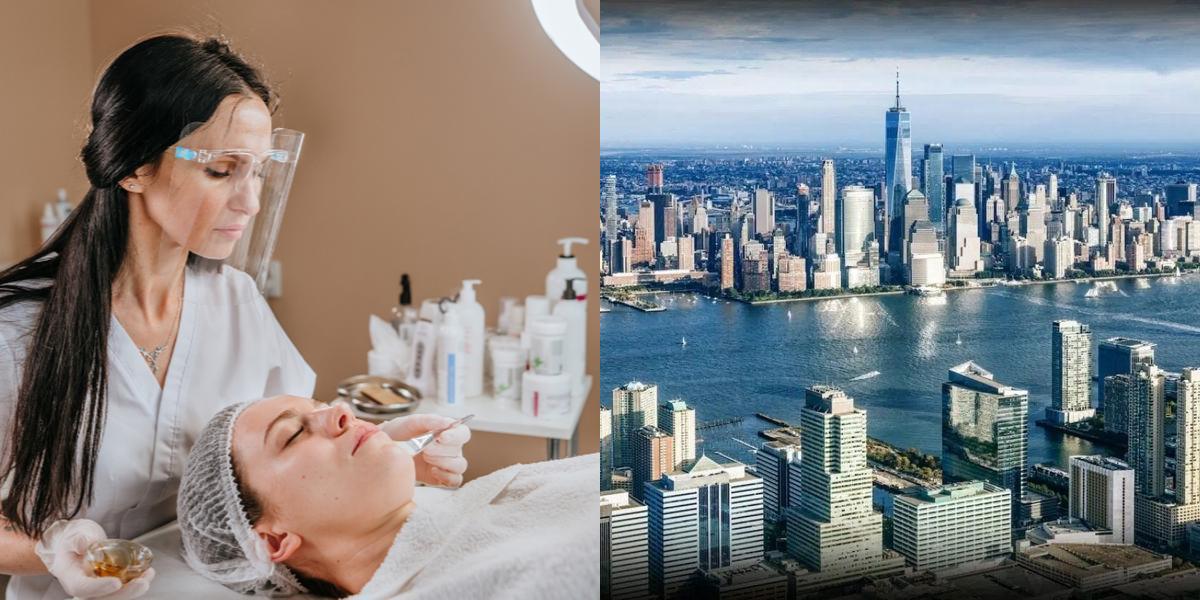How to Become an Esthetician in New Jersey

What is an Esthetician?
An esthetician is a skincare specialist who is trained to provide various treatments and services to clients. They focus on improving the appearance and health of the skin through facials, exfoliation, hair removal, and other skincare techniques. Estheticians also offer advice and recommendations on skincare products and routines.
Some responsibilities of an esthetician include:
- Analyzing clients' skin conditions and determining appropriate treatments
- Performing facials, chemical peels, and microdermabrasion
- Removing unwanted hair through waxing or other hair removal methods
- Providing skin consultations and recommending skincare products
- Educating clients on proper skincare routines and techniques
How do I get a job as an Esthetician?
Once you have obtained your esthetician certification, you are ready to start your career in the beauty industry. Here are some steps to help you get a job as an esthetician:
-
Build a professional resume: Start by creating a professional resume that highlights your esthetician training, certifications, and any relevant work experience. Include a summary of your skills and qualifications, as well as any specialized training or areas of expertise. Be sure to tailor your resume to the specific job you are applying for, emphasizing relevant skills and experiences.
-
Develop a portfolio: As an esthetician, having a portfolio of your work is essential. Include before and after photos of clients you have worked with, showcasing your skills and the results you can achieve. Additionally, include any special projects or events you have participated in, such as fashion shows or photo shoots.
-
Network within the industry: Networking is crucial in the beauty industry. Attend industry events, join professional organizations, and connect with other estheticians and professionals in the field. Building relationships with others in the industry can lead to job opportunities, mentorship, and further career advancement.
-
Apply for jobs: Start applying for esthetician positions at spas, salons, skincare clinics, and other establishments that offer skincare services. Look for job postings online, in local newspapers, and on industry websites. Be proactive in your job search and reach out to employers directly to inquire about potential job openings.
-
Prepare for interviews: Once you start getting interview requests, it's essential to prepare for the interviews. Research the company you are interviewing with, familiarize yourself with their services and clientele, and be prepared to answer questions about your esthetician training and experience. Practice your interview skills, including your ability to communicate effectively and showcase your passion for skincare.
-
Continue learning and growing: The beauty industry is constantly evolving, so it's important to stay updated on the latest trends, techniques, and products. Take advantage of continuing education opportunities, attend workshops and seminars, and keep expanding your knowledge and skills. This will not only make you a more competitive candidate but also help you advance in your career as an esthetician.
Career Paths and Opportunities after Becoming a Esthetician
Becoming a licensed esthetician opens up a wide range of career paths and opportunities in the beauty industry. Here are some of the options you can explore:
-
Spa or salon esthetician: Many estheticians start their careers working in spas or salons. In this role, you will provide skincare treatments, such as facials, body wraps, and exfoliation treatments, to clients. You may also offer additional services like waxing, makeup application, and eyebrow shaping. Working in a spa or salon allows you to gain experience, build your clientele, and develop your skills as an esthetician.
-
Medical esthetician: If you are interested in working in a medical setting, you can pursue a career as a medical esthetician. Medical estheticians work in dermatology clinics, plastic surgery offices, and medical spas, providing skincare treatments to patients with specific skin conditions or those who have undergone cosmetic procedures. As a medical esthetician, you may perform treatments like chemical peels, laser hair removal, microdermabrasion, and scar revision.
-
Makeup artist: With your esthetician training, you can also pursue a career as a professional makeup artist. As a makeup artist, you will use your knowledge of skincare and makeup techniques to enhance the natural beauty of your clients. You can work in various settings, including bridal makeup, fashion shows, photo shoots, and film and television productions.
-
Product sales representative: Another career path for estheticians is to work as a sales representative for skincare and beauty product companies. In this role, you will promote and sell skincare products to spas, salons, and individual clients. You will need to have in-depth knowledge of the products you are selling and be able to educate and advise clients on the best skincare options for their needs.
-
Entrepreneurship: As a licensed esthetician, you have the option to start your own skincare business. You can open your own spa or salon, offering a range of skincare services and products. Being an entrepreneur gives you the flexibility to create your own schedule, set your prices, and build your brand. However, starting your own business requires careful planning, financial investment, and marketing efforts to attract clients.
Final Thoughts
Becoming a licensed esthetician is an exciting and rewarding career choice for those interested in skincare and the beauty industry. By following the steps outlined above, you can obtain your esthetician certification and start your journey as a skincare professional. Whether you choose to work in a spa, medical setting, or start your own business, the opportunities for growth and advancement in this field are endless. Remember to continue learning and staying updated on the latest trends and techniques to stay competitive and provide the best possible service to your clients.
Looking for a better fit? These other articles could be more in line with your expectations if this one isn't precisely what you had in mind:





